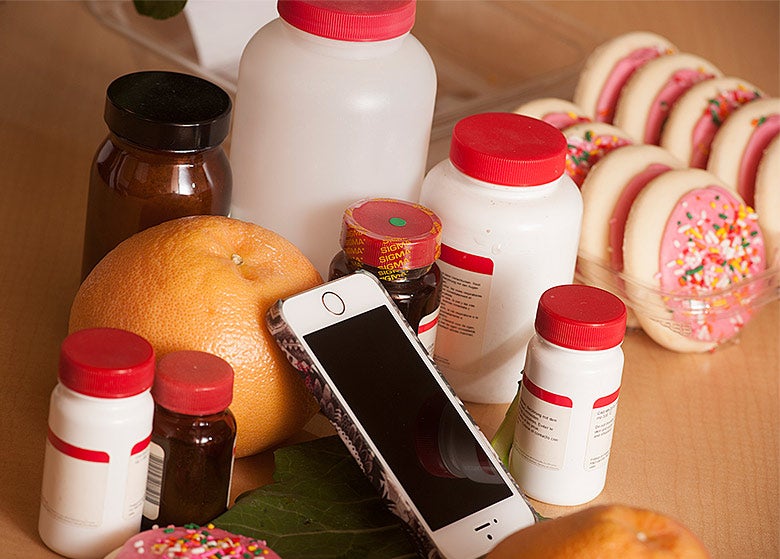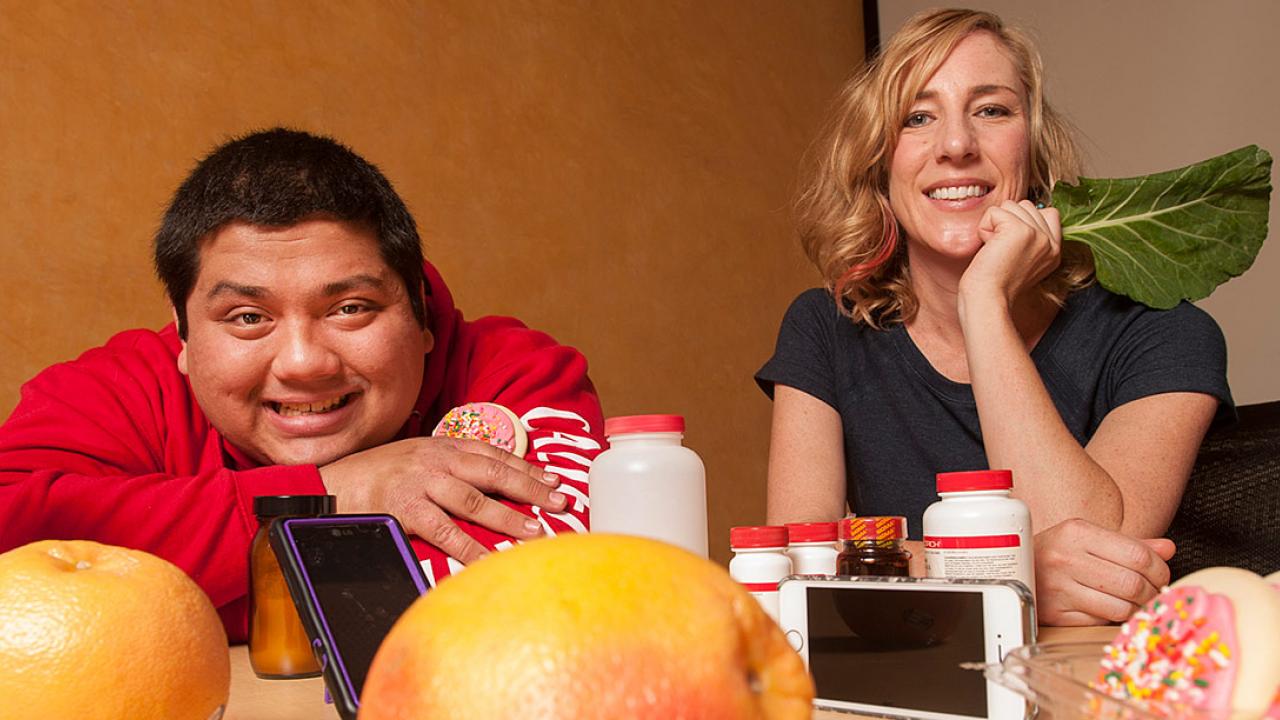
Facebook Chef Cooks Up Food Hackathon
Tim West, who trained at the Culinary Institute of America before cooking at Facebook headquarters, organized the first Food Hackathon in 2013 as a community-building opportunity for food entrepreneurs and software developers.
West points out the hackathon model originates from World War II engineers who would hack apart and rebuild planes to customize and improve them.
“The hackathon movement actively works to create solutions to problems,” he says. “It’s this unbelievable way to funnel in this amazing energy that’s been built up and is bursting from the seams in this world.”
West envisioned the hackathon as a way to bridge California’s Silicon Valley developers to the food-centric Central Valley.
Under the motto “Nutrition for All,” this year’s third iteration of this competition to rethink food also served as a launching event for the CIA’s new Food Business School.
Learn more about the Food Hackathon in this video.
The Innovation Institute for Food and Health, a new World Food Center collaboration between UC Davis and Mars Inc., co-sponsored the hackathon under its initiative “Affordable Nutrition for All.”
Their proposal won first place at the recent Food Hackathon, a competition designed to rethink the way people and technology interact in our food systems. The grand prize was a networking and mentoring trip to the2015 World Expo, which is the first world’s fair devoted to food and feeding the world and will include a similar, larger hackathon.
“It was a great experience for all the UC Davis students who participated, because they don’t normally interact in projects with students from other programs,” says Bob Adams, innovation adviser for the UC Davis World Food Center and a mentor for the hackathon teams.
From notes app to nutrition app
The winning hacker app came from UC Davis undergraduate student Constantine “Costa” Spyrou, who turned a few notes brainstormed on his phone to the most innovative product at the March competition held in San Francisco.
“I was in shock for the next 24 hours,” says the third-year food science major, “I never expected that to happen when I went to the hackathon.”
With the victory, his team is now working with new partners to expand the site and the business model before they fly to the World Expo in the fall.
Shaping a product in under 40 hours
Inspired by opening talks Friday night, Spyrou pitched his idea the next day to the 241 innovators, entrepreneurs and scholars involved in the hackathon.
From the various pitches, 18 teams fused together. Spyrou’s grew to include Sara Schaefer, a UC Davis Foods for Health nutrition expert; Sonja Sulcer, a Silicon Valley entrepreneur; and Cindy Ma, an undergraduate student at UC Berkeley. Bruce German, a UC Davis food chemist renowned for advising student entrepreneurs, proved especially valuable as a mentor.
“It’s powerful how much happens in such a short period of time,” Adams says.

Called “Took that? Eat this.,” the team’s proposal linked patients to their diets, doctors and pharmacies to help them learn what foods to avoid with their medications.
The goal was to cut down on adverse reactions from such combinations as Lipitor, a prescription medicine that lowers blood cholesterol, and grapefruit, which when combined with Lipitor increases the likelihood of side effects like liver damage and kidney failure. The proposed app also recommended what foods to include that reduce side effects.
Tracking health through technology
Schaefer found a natural fit in the competition and with Spyrou’s idea for a nutrition app. She specializes in how to engage children through technologies like video games and activity-tracking devices to monitor their personal health and nutrition.
‘The hackathon was a great example of what UC Davis and the World Food Center are trying to achieve in the area of nutrition.’
— Sara Schaefer
“The hackathon was a great example of what UC Davis and the World Food Center are trying to achieve in the area of nutrition,” she says. “There were so many diverse people that came together in an intense session where you have all these different skills. There’s a lot of power in that.”
Schaefer was inspired by how such innovative approaches could take on serious issues. With her own research, she would like to see similar activities that encourage profitable business ventures to spin off her work, giving it new life.
Spyrou’s initial pitch resonated with her, particularly since she had just guest-lectured in a food chemistry class that Friday morning at the invitation of food science and technology professor Bruce German. Coincidentally, Spyrou was a student in that lecture, as Schaefer discovered when she approached his hackathon team.
She brought the science and nutrition expertise to the team, while Cindy Ma shared her design knowledge. Sonja Sulcer had the business acumen and Spyrou brought it together with his development skills and food science education.
A campus connecting food and nutrition
The more than two dozen UC Davis attendees at the hackathon learned about the event from the many faculty members and researchers serving as speakers or mentors. Word spread across the campus of this rare opportunity for scholars to engage in the Silicon Valley development world.
The contingent, ranging from undergraduates to postdoctoral scholars, came from a variety of departments and units, such as Food and Science Technology, Biological and Agricultural Engineering, Sustainable Agriculture and Food Systems, Design and Computer Science.
App captures what technology leaves behind
Another team — almost entirely UC Davis participants — developed an idea they called “SyRL,” or Symbolic Recipe Language, which addressed the lack of a universal language in cooking.
By creating a system of images like those provided with Ikea instructions, they would capture the ways established cuisines have been traditionally — and often more nutritionally — prepared. The app casts light on customs that are disappearing as speedier cooking methods evolve.
The team won the People’s Choice award for their pitch, and Mars Inc., a co-sponsor of the hackathon, is providing funding to further develop the SyRL project.
